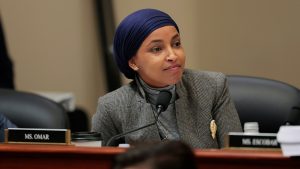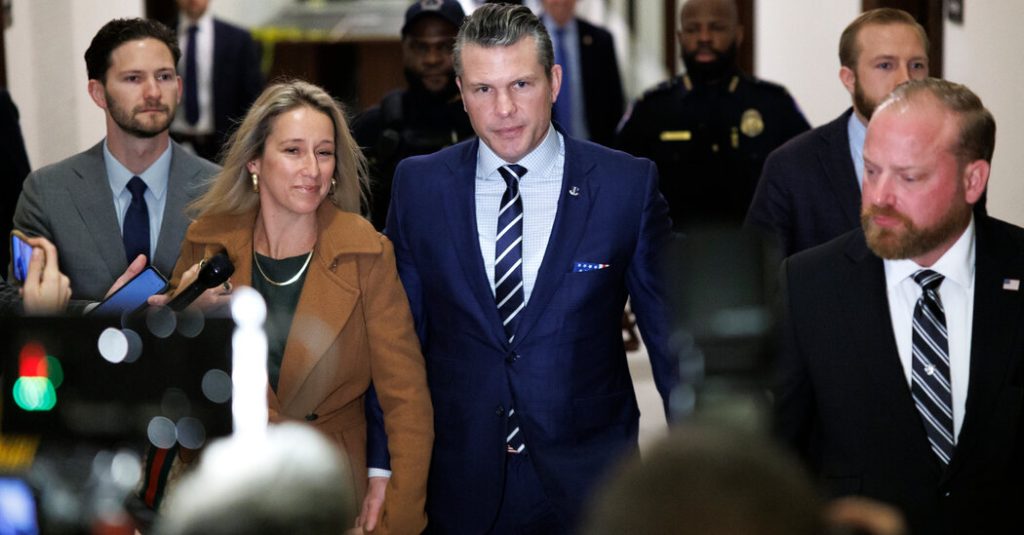Pete Hegseth, President-elect Donald J. Trump’s pick for Secretary of Defense, is set to appear before the Senate Armed Services Committee on Tuesday, facing a series of critical questions about his qualifications, past conduct, and controversial views. As the committee evaluates his suitability for one of the most critical posts in the U.S. government, this hearing promises to be a closely watched and potentially heated event. With a history marked by scandals, controversial statements, and limited managerial experience, Hegseth’s nomination has already sparked substantial debate. Let’s explore the key issues likely to be raised during this pivotal hearing.
Allegations of Alcohol Misuse
A prominent issue certain to arise is Hegseth’s history of alcohol use. Reports from various media outlets, including The New York Times, have revealed instances of excessive drinking on his part, some of which Hegseth has publicly acknowledged. While he has assured the public—and by extension, the Senate committee—that he has turned over a new leaf, vowing there will “not be a drop of alcohol on [his] lips” if confirmed, questions linger about his judgment and behavior.
Will the senators accept his promise of abstinence as sufficient, or will they expect more tangible assurances regarding his fitness to manage an enterprise as vast and critical as the Pentagon? The Department of Defense commands an annual budget of $849 billion and supports nearly three million employees, tasks that will demand a high degree of focus, discipline, and sound decision-making. Several lawmakers are likely to press Hegseth to elaborate not only on his personal changes but also on how he plans to handle the stress and weight of the position, given his past lapses in judgment.
Addressing Sexual Assault Allegations
Another focal point will undoubtedly be the resurfacing of a 2017 police investigation into an alleged sexual assault by Hegseth. A woman accused him of raping her following a speaking engagement in Monterey, California. While criminal charges were not filed, Hegseth admitted that the two had a sexual encounter, which he claimed was consensual, and later paid the accuser a confidential settlement. Hegseth has maintained that the settlement was not an admission of guilt but an effort to protect his reputation and employment. However, the committee is unlikely to let this matter slide without a more detailed explanation.
Questions about his moral character and the potential vulnerability he could pose to blackmail or leverage by foreign adversaries could be raised. Sexual assault allegations—not to mention secret financial settlements—are serious red flags when considering candidates for a post centered on national security and public trust. Senators may press him on whether he dated this woman before or after the incident, why he chose to settle rather than fight the allegations in court, and what personal accountability he feels he bears for the circumstances.
Concerns Over Managerial Experience
In addition to personal controversies, the committee will likely scrutinize Hegseth’s professional background and managerial experience. Unlike many of his predecessors, Hegseth lacks substantial high-level administrative or defense experience. Past defense secretaries have typically brought extensive knowledge of military operations, administrative management, or experience in leadership roles within the armed forces or large government bodies.
Hegseth, on the other hand, is better known to the public as a weekend anchor on Fox & Friends, a conservative morning talk show. His leadership experience is limited to heading two small veterans’ groups between 2008 and 2016, both of which encountered financial difficulties under his stewardship. The senators are certain to probe how his background aligns with the requirements of managing a sprawling agency like the Pentagon, which is one of the world’s largest and most complex organizations.
Questions on accountability and fiscal responsibility will likely dominate this line of inquiry, with specifics about his track record in financial oversight. How would someone with limited managerial experience handle the defense budget or manage the intricate relationships between different branches of the military? Can Hegseth provide a persuasive response to calm concerns about his ability to lead at this scale?
Controversial Views on Women in the Military
Hegseth’s views on women in combat roles and diversity policies in the military present yet another obstacle he must overcome during the hearing. He has previously stated that “we should not have women in combat roles,” a stance that directly contradicts years of progress made toward gender equality in the U.S. military. While Hegseth has since softened his tone, saying that women could serve in these roles if they meet rigorous standards, his earlier comments have raised concerns about whether he would attempt to reverse existing policies.
Members of the committee may press Hegseth to reconcile his personal viewpoint with the Pentagon’s current approach to inclusivity. His earlier rhetoric on this topic appears to undermine decades of advancements, not only for women but also in fostering a more inclusive and effective military. Will lawmakers push him to unequivocally commit to preserving current standards? Or will they worry that his leadership may set the clock back on progress made by women serving in the armed forces?
Views on Diversity and “Woke” Culture
Hegseth’s previous disparaging remarks about diversity programs in the military also threaten to overshadow his confirmation hearing. In the past, he has criticized military leadership for supporting diversity initiatives, claiming that these efforts have “effeminated” the armed forces. He has specifically accused “woke” generals of weakening morale and driving away “America’s white sons and daughters.” Such statements are likely to alarm Democrats on the committee and potentially moderate Republicans as well.
Senators may ask him to clarify his vision for the military moving forward: Does he intend to dismantle or scale back diversity programs? How would he handle the balancing act of fostering unity and discipline within a diverse force while making sure all service members feel valued? Hegseth’s ability—or inability—to articulate a grounded, inclusive leadership philosophy could weigh heavily in their ultimate decision.
Stances on Key International Policies
Beyond deeply divisive domestic issues, the confirmation hearing is also expected to delve into Hegseth’s views on pressing global security challenges. One key area of focus will likely be the war in Ukraine. Hegseth has previously expressed skepticism about continuing U.S. military aid to Ukraine during its ongoing conflict with Russia. Given bipartisan support in Congress for providing Ukraine with security assistance, his stance could face sharp opposition.
Additionally, lawmakers are expected to question him on broader foreign policy issues, including the United States’ posture toward Iran and China, two of America’s most significant adversaries on the global stage. With Iran’s nuclear program causing alarm and China’s military might rising, senators will want to know how Hegseth plans to counter these escalating threats. For instance, would he support U.S. or allied military strikes on Iran’s nuclear facilities? Does he have a specific plan to mitigate China’s expanding influence in the Indo-Pacific? These are not just strategic concerns but ones of significant geopolitical consequence, and the Senate will want substantive answers.
Broader Perspectives on the Role of the Military
The discussion on international policy issues will undoubtedly spiral into broader questions about Hegseth’s overall philosophy on the military’s role—both abroad and domestically. Does he support U.S. force projection globally, or does he favor a more isolationist approach? How does he balance safeguarding the nation’s interests while avoiding foreign entanglements that could drain American resources?
Senators may also ask him to explain his criteria for military intervention in global conflicts. His answers will provide insight into whether his views align with the Pentagon’s strategic objectives and whether he can collaborate effectively with military leaders in shaping U.S. policy.
Conclusion
Pete Hegseth’s confirmation hearing is shaping up to be a critical juncture in the consideration of his nomination as Secretary of Defense. From his history of personal misconduct to his polarizing viewpoints on key issues, there is no shortage of controversies and questions for the Senate Armed Services Committee to address. At stake is not just the leadership of the Department of Defense, but the direction and priorities of America’s military under the next administration.
Hegseth’s ability to present himself as a competent and responsible leader who can rise above his past controversies will undoubtedly determine whether he wins over skeptical lawmakers. With national security and the defense of the United States on the line, this confirmation hearing will be more than just political theater—it will be a defining moment for the future of the Pentagon. Only time will tell if Hegseth’s responses will quell the doubts swirling around his nomination or amplify them.











